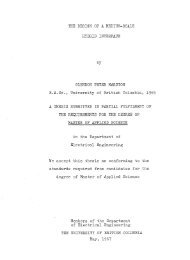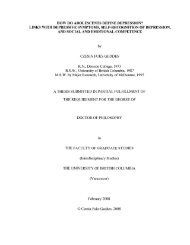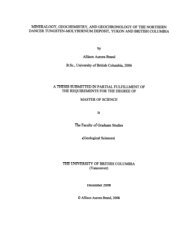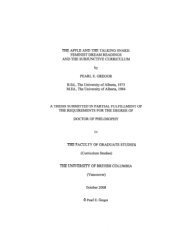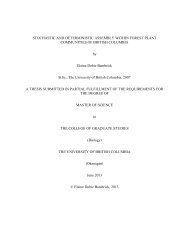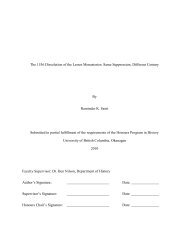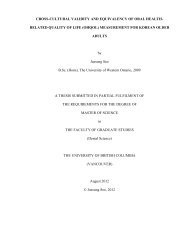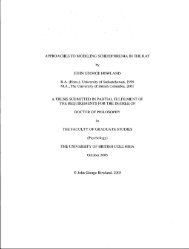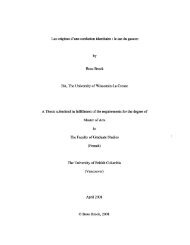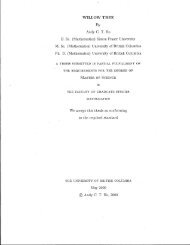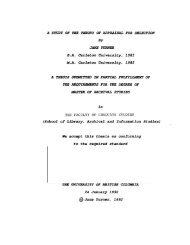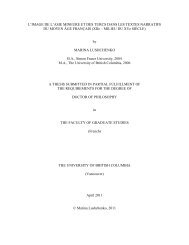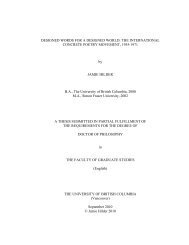Chapter 2 - University of British Columbia
Chapter 2 - University of British Columbia
Chapter 2 - University of British Columbia
You also want an ePaper? Increase the reach of your titles
YUMPU automatically turns print PDFs into web optimized ePapers that Google loves.
number <strong>of</strong> different cancer types. Moreover, it can be classified that while oncogenes typically<br />
harbour activating mutations, tumor suppressor genes <strong>of</strong>ten harbour inactivating mutations.<br />
In lung adenocarcinoma, the most well known genes shown to be mutated are EGFR, KRAS,<br />
LKB1 (or STK11), TP53 and CDKN2A [30, 54, 64, 65], with some mutations such as EGFR and<br />
KRAS showing preferential mutation patterns based on smoking history. A recent study<br />
assessing other well known oncogenes and tumor suppressor genes showed there were a<br />
number <strong>of</strong> other genes also observed to be mutated in lung adenocarcinoma [64]. However,<br />
due to technological and material limitations at the time, many <strong>of</strong> these studies only assess<br />
small numbers <strong>of</strong> genes in a given study and thus, genome wide screening for somatic<br />
mutations is unfeasible. While high throughput sequencing technologies to assess sequence<br />
mutation on a genome scale have become available, challenges associated with cost and data<br />
analysis preclude the use in a routine manner.<br />
1.4 Epigenetic alterations in lung cancer<br />
1.4.1 DNA methylation<br />
Another DNA level mechanism which can affect gene expression is through the methylation <strong>of</strong><br />
DNA at gene promoters. DNA methylation is a reversible chemical modification which has<br />
shown to have a prominent role in the silencing <strong>of</strong> tumor suppressor genes. Specifically, this<br />
modification targets cytosines whereby a methyl (CH3) is added to the carbon 5 moiety <strong>of</strong><br />
cytosine.<br />
It is thought that in cancer, the majority <strong>of</strong> the genome loses its methylation but small areas in<br />
the gene promoters, known as CpG islands, gain methylation [66-69]. Generally, it is thought<br />
that the acquired methylation targets tumor suppressor genes while the areas <strong>of</strong> lost<br />
methylation facilitate the activation <strong>of</strong> repetitive areas <strong>of</strong> the genome which can lead to<br />
increased genomic instability. In addition, aberrant DNA methylation <strong>of</strong> critical genes have been<br />
6




